Keeping tradition alive, in hopes to one day return home to Crimea
A map of Crimea is drawn on the blackboard as a teacher educates students on the history of this state. Children, 8 and 9 years old, carefully take notes as some raise their hands to ask questions. This school is a program run by the non-profit, Krymska Rodyna, and hosts lessons every Saturday on all Crimean Tatar traditions. From history lessons to dance lessons, classes are offered to youth starting as early as 4 years old to adults.
Five years ago this month Crimea was occupied by Russia, and conflict broke out in eastern Ukraine, causing 1.5 million persons to be displaced. Many, including Crimean Tatars, fled to major cities, such as Odesa, Lviv, and Kyiv, thus starting new lives.
Anife Kurtseitova, 37, has been an activist fighting for the rights of the Crimean Tatar community. A strong advocate, she has participated in numerous interviews, educating others about her culture, and hosted fundraising campaigns for Crimean children of political prisoners. She decided not to let tragedy determine the fate of her community.
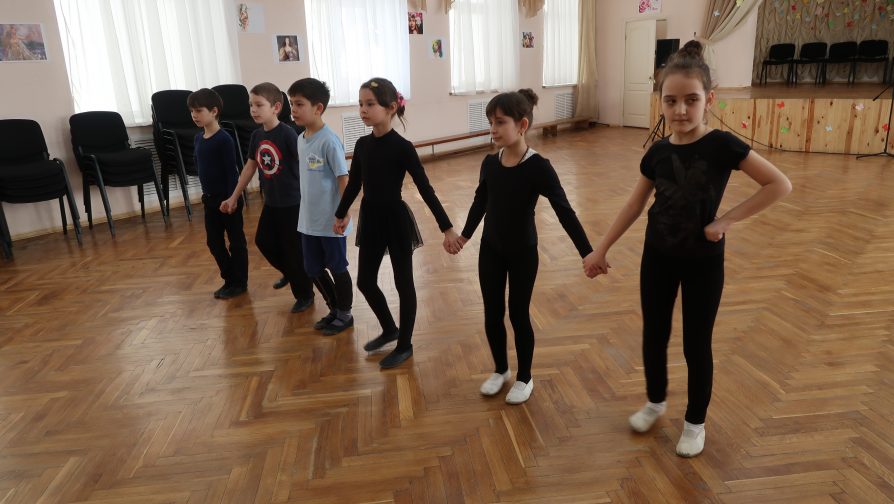
Building an NGO organization after moving to Kyiv, she began a Saturday school program focusing on all things relating to the Tatar culture. While negotiating with the Department of Education , she managed to arrange the permission to use several premises on the basis of one school in Kyiv during the time free from classes.
Parents and all community of IDPs from Crimea hope that the city authorities will pay attention to the successful activities of NGO and will provide premises for the creation of a unique Crimean-Tatar center for children. Given the fact that over the last year the number of visitors to the center has doubled. Currently, there are 100 pupils and about 50 families, who would like to join the school because there are nothing similar in Kyiv.
The children are divided by age, covering specific categories; dance lessons, music lessons, history lessons, and even the Tatar language. Traditional Tatar embroidery classes are also offered for adults. The students also host public dance performances in traditional costumes.
Running up and down the stairs speaking to mothers who are helping her coordinate the classes, Anife quickly caters to each teacher’s needs. In the waiting room, parents laid out cakes and desserts as they laughed and shared stories about their children. Everyone knew everyone, and the parents were just as dedicated as Anife in keeping the program running.
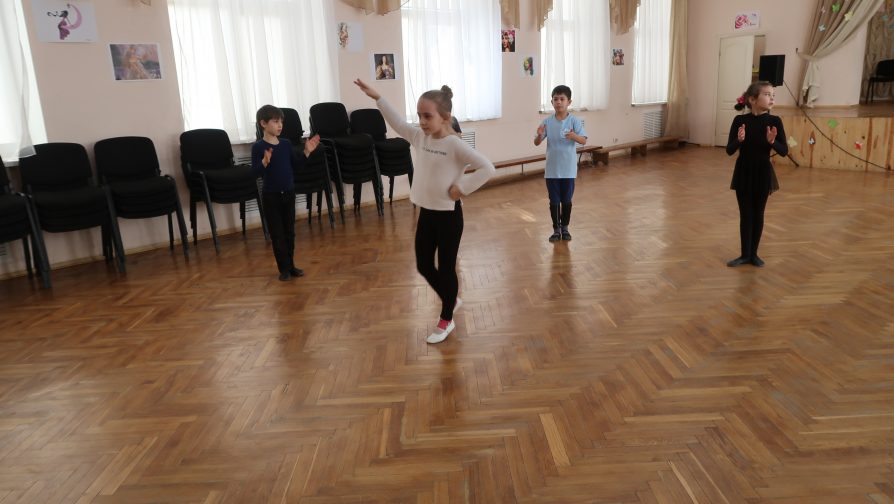
“It is important for me to keep our traditions and languages alive. We are waiting when the Crimean occupation will be over and all these families will be able to come back home,” says Anife.
Though it is unknown when this day will come, Anife refuses to give up hope, finding creative ways to keep the spirit of her heritage alive. Her pride represents leadership, and with her guidance the Tatar community became a team. With their efforts, their culture will live on to future generations regardless of any difficulty.
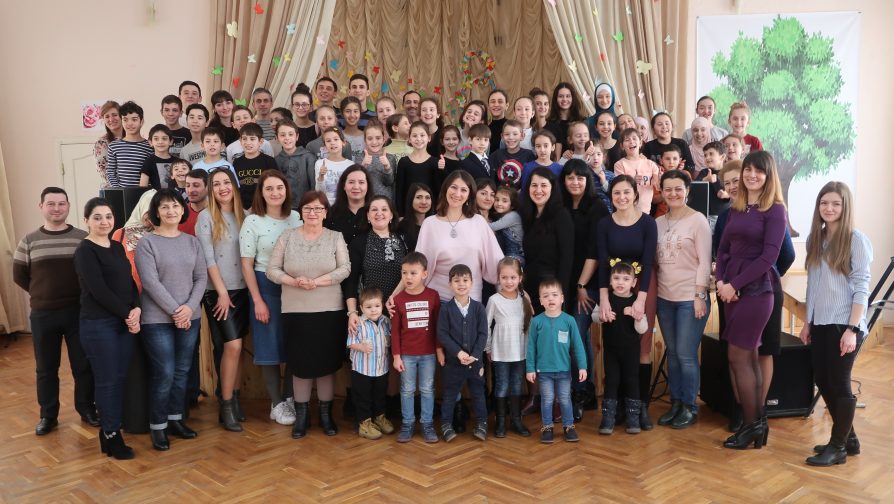
Community-based approach a core to protection and transcends to UNHCR’s work with displaced population. UNHCR Ukraine protection strategy is built on strengthening community based protection mechanisms initiated by the IDPs and host community to identify and respond to protection needs and create coping mechanisms.
UNHCR Ukraine community based protection activities included regular dialogue and communication with IDPs through protection monitoring and Participatory Assessment and Support to small community initiatives. The project was aimed at enhancing capacity of the NGO consisted of initiative of Crimean Tatar IDPs to provide activities for Crimean Tatar children aimed at maintaining their ethnic identity and cultural traditions on the mainland of Ukraine. In 2015 and 2016 UNHCR provided technical assistance (microphones and audio system) and 10 stage outfits for children to the NGO for conduction of classes of Crimean Tatar music, vocal and dancing for the children.
Page 27 of 35
-
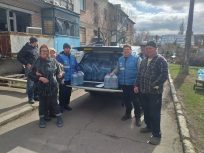
International Water Day: Addressing the lack of drinking water in east Ukraine
21 Mar 2020Water security is one of the most urgent problems for communities living near the contact line in Donbas
-

How to extend certificate from Migration Service of Ukraine during the crisis
20 Mar 2020and actual information regarding the working schedule of the SMS
-
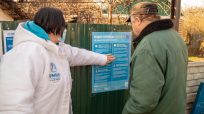
UNHCR and partners raise awareness on COVID-19 in east Ukraine
20 Mar 2020WHO information materials are placed in collective centers, isolated villages along the ‘contact line’
-

Statement by Filippo Grandi, UN High Commissioner for Refugees, on the COVID-19 crisis
20 Mar 2020“Let us not forget those who are fleeing war and persecution. They need – we all need – solidarity and compassion now more than ever before.”
-
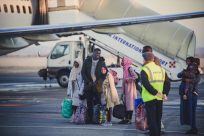
IOM, UNHCR announce temporary suspension of resettlement travel for refugees
18 Mar 2020This is a temporary measure that will be in place only for as long as it remains essential.
-

COVID-19 (Coronavirus): UNHCR offices in Ukraine remain operational
18 Mar 2020See contact details and important prevention information
-

Inspiring women: Social project for children with mental disabilities
11 Mar 2020Psychological rehabilitation of children is only a first step on the way to a comfortable and happy life of our special children
-
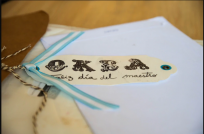
He fled the war in Syria after saving himself from two attacks, took refuge in Argentina and today teaches English in high school
10 Mar 2020Life story of a Syrian refugee: similar customs and reflections on the integration opportunities
-
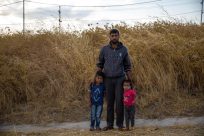
More resettlement needed as only 4.5 per cent of global resettlement needs met in 2019
5 Feb 2020Out of 1.4 million refugees estimated to be in urgent need of resettlement worldwide, only 63,696 were resettled through UNHCR, the UN Refugee Agency, last year.
-
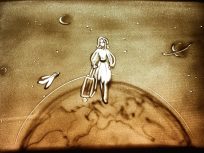
Impressive sand animation to the World Cancer Day
3 Feb 2020UNHCR tells a story of a stateless woman through the sand animation
